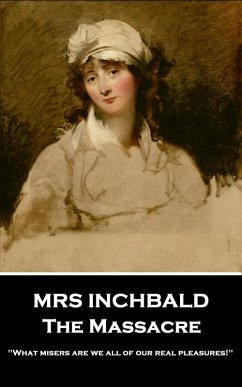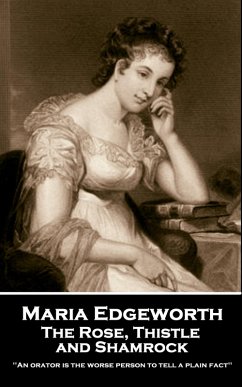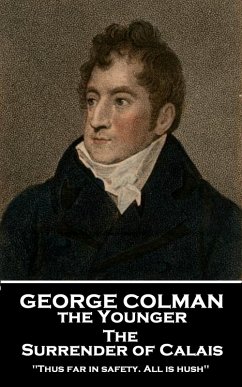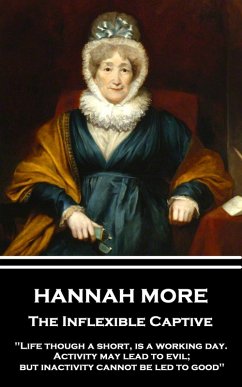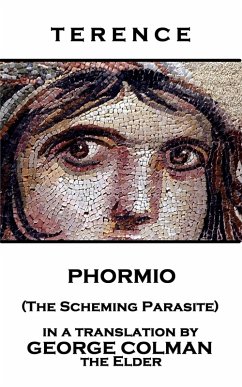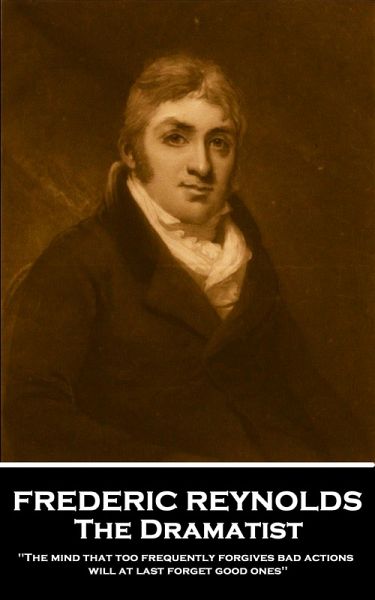
The Dramatist (eBook, ePUB)
'The mind that too frequently forgives bad actions will at last forget good ones''

PAYBACK Punkte
1 °P sammeln!
Frederic Reynolds was born in Lime Street London on 1st November 1764.Born into a prosperous family Reynolds was initially educated at a boarding school in Walthamstow and then in January 1776 he entered Westminster school. On 12th January 1782 he entered the Middle Temple, but soon abandoned any career in law for that of playwriting.During his literary career he composed nearly one hundred tragedies and comedies, many of which were printed, and about twenty of them obtained moderate but passing popularity. Reference is still made to his adaptations of some Shakespeare comedies.He was an amate...
Frederic Reynolds was born in Lime Street London on 1st November 1764.
Born into a prosperous family Reynolds was initially educated at a boarding school in Walthamstow and then in January 1776 he entered Westminster school. On 12th January 1782 he entered the Middle Temple, but soon abandoned any career in law for that of playwriting.
During his literary career he composed nearly one hundred tragedies and comedies, many of which were printed, and about twenty of them obtained moderate but passing popularity. Reference is still made to his adaptations of some Shakespeare comedies.
He was an amateur cricketer of some note mainly with the Marylebone Cricket Club (MCC) and made two first-class appearances.
His first play 'Werter', was based on the novel by Goethe and produced at the Bath Theatre on 25th November 1785, and then Covent Garden Theatre, London the following March.
'Eloisa', his next drama, ran at Covent Garden in December 1786. Reynolds now moved from tragedy to writing comedy. His first comedy was 'The Dramatist' and was performed on 15th May 1789 to great acclaim. As an aside one of his plays written with Miles Peter Andrews was 'The Caravan, or the Driver and his Dog', and performed at Drury Lane. It's novelty being the introduction of a live dog trained to rescue a child by leaping into real water from a rock.
On 16th March 1799 he married Elizabeth Mansel, a young lady from South Wales, who was then working at the Covent Garden Theatre.
From 1814 to 1822 Reynolds was permanently engaged at Covent Garden Theatre as 'thinker' for the management, and later took the same position at Drury Lane.
With the publication in 1826 of his autobiography, 'The Life and Times of Frederic Reynolds', his name, in later editions, was spelt 'Frederick', and is still a cause of confusion to this day.
In 1831 he published a novel, 'A Playwright's Adventures'. His last work to gain performance was a pantomime at the Adelphi Theatre for Christmas 1840.
Frederic Reynolds died on 16th April 1841.
Born into a prosperous family Reynolds was initially educated at a boarding school in Walthamstow and then in January 1776 he entered Westminster school. On 12th January 1782 he entered the Middle Temple, but soon abandoned any career in law for that of playwriting.
During his literary career he composed nearly one hundred tragedies and comedies, many of which were printed, and about twenty of them obtained moderate but passing popularity. Reference is still made to his adaptations of some Shakespeare comedies.
He was an amateur cricketer of some note mainly with the Marylebone Cricket Club (MCC) and made two first-class appearances.
His first play 'Werter', was based on the novel by Goethe and produced at the Bath Theatre on 25th November 1785, and then Covent Garden Theatre, London the following March.
'Eloisa', his next drama, ran at Covent Garden in December 1786. Reynolds now moved from tragedy to writing comedy. His first comedy was 'The Dramatist' and was performed on 15th May 1789 to great acclaim. As an aside one of his plays written with Miles Peter Andrews was 'The Caravan, or the Driver and his Dog', and performed at Drury Lane. It's novelty being the introduction of a live dog trained to rescue a child by leaping into real water from a rock.
On 16th March 1799 he married Elizabeth Mansel, a young lady from South Wales, who was then working at the Covent Garden Theatre.
From 1814 to 1822 Reynolds was permanently engaged at Covent Garden Theatre as 'thinker' for the management, and later took the same position at Drury Lane.
With the publication in 1826 of his autobiography, 'The Life and Times of Frederic Reynolds', his name, in later editions, was spelt 'Frederick', and is still a cause of confusion to this day.
In 1831 he published a novel, 'A Playwright's Adventures'. His last work to gain performance was a pantomime at the Adelphi Theatre for Christmas 1840.
Frederic Reynolds died on 16th April 1841.
Dieser Download kann aus rechtlichen Gründen nur mit Rechnungsadresse in D ausgeliefert werden.




